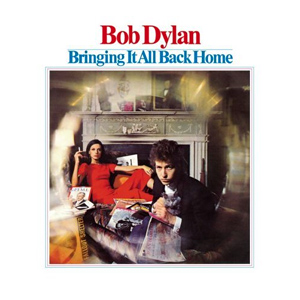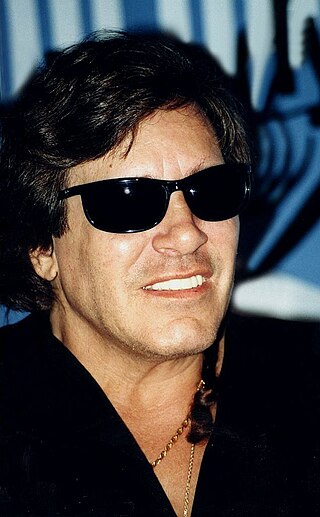This article needs additional citations for verification .(December 2021) |
Give Me a Home Among the Gumtrees (or Home Among the Gumtrees) is a popular Australian song written in 1974 by Wally Johnson and Bob Brown (aka Captain Rock).
This article needs additional citations for verification .(December 2021) |
Give Me a Home Among the Gumtrees (or Home Among the Gumtrees) is a popular Australian song written in 1974 by Wally Johnson and Bob Brown (aka Captain Rock).
It was originally performed as a satirical number in Johnson and Brown's comedy act at the Flying Trapeze Cafe in Fitzroy, Melbourne and was first recorded in 1975 on the Captain Rock album Buried Treasure on Mushroom Records. At that time the Australian Government was running an open competition to find a replacement for God Save the Queen as Australia's national anthem; [1] the Gumtrees song was Johnson and Brown's entry.
In 1982, although this story is not confirmed by all members of the band, Bullamakanka recorded a cover version of Gumtrees, which then became a hit. The song was later recorded by popular Australian country music singer-songwriter John Williamson, thus increasing its popularity with many mistakenly believing Williamson to be the original composer. Bullamakanka made some changes to the lyrics, which were also retained in Williamson's recording. These tended to water down the original tongue-in-cheek nature of the song. Bullamankanka's version peaked at number 88 on the Australian charts in May 1982. [2]
Bullamakanka's version was later used as the theme song for a popular gardening and lifestyle television program called Burke's Backyard , which ran on Australian television for 17 years. The program once held a competition for the best school video version of Home Among the Gumtrees, and thousands of entries were submitted; one of the winners was an Aboriginal community school group who sang the song in their own language.
Home Among the Gumtrees has a set of mime actions accompanying the chorus which are familiar to people throughout Australia, although their exact origins are unknown.
The song has become one of the most frequently recorded Australian compositions of all time and is a standard in Australian folk music. A variety of artists have covered it, ranging from bushbands like Paradiddle to international superstar violinist André Rieu, who included it on his 2008 album Waltzing Matilda . John Williamson performed Gumtrees at the 2006 memorial service to commemorate popular Australian wildlife expert and TV personality Steve Irwin; the program was followed by a worldwide television audience reputedly numbering 300 million viewers.
Co-writer Wally Johnson died of pneumonia in 1995. Bob Brown has continued writing and performing tongue-in-cheek folk songs, which have been covered by artists including John Williamson and folk singer Slim Dusty. One of Brown's numbers I’m an Individual was recorded by cult Australian Rules footballer Mark ‘Jacko’ Jackson, and became an Australia-wide hit. Brown has also recorded an album of children's songs called Riding Round on Golf Balls.

The Seekers was an Australian folk-influenced pop group originally formed in Melbourne in 1962. They were the first Australian pop music group to achieve major chart and sales success in the United Kingdom and the United States. They were especially popular during the 1960s, with their best-known configuration of Judith Durham on vocals, piano and tambourine; Athol Guy on double bass and vocals; Keith Potger on twelve-string guitar, banjo and vocals; and Bruce Woodley on guitar, mandolin, banjo and vocals.

Bringing It All Back Home is the fifth studio album by the American singer-songwriter Bob Dylan, released in March 1965 by Columbia Records. In a major transition from his earlier sound, it was Dylan's first album to incorporate electric instrumentation, which caused controversy and divided many in the contemporary folk scene.

José Montserrate Feliciano García is a Puerto Rican musician. He recorded many international hits, including his rendition of the Doors' "Light My Fire" and his self-penned Christmas song "Feliz Navidad". Music genres he explores consist of fusion of many styles, such as Latin, blues, jazz, soul and rock music, created primarily with the help of his signature acoustic guitar sound.
The Corries were a Scottish folk group that emerged from the Scottish folk revival of the early 1960s. The group was a trio from their formation until 1966 when founder Bill Smith left the band but Roy Williamson and Ronnie Browne continued as a duo until Williamson's death in 1990.
Wallace Victor "Wally" Whyton was a British musician, songwriter and radio and TV personality.

Australian country music is a part of the music of Australia. There is a broad range of styles, from bluegrass, to yodeling to folk to the more popular. The genre has been influenced by Celtic and English folk music, the Australian bush ballad tradition, and popular American country music. Themes include: outback life, the lives of stockmen, truckers and outlaws, songs of romance and of political protest; and songs about the "beauty and the terror" of the Australian bush.

John Robert Williamson is an Australian country music and folk music singer-songwriter, multi-instrumentalist, television host and conservationist. Williamson usually writes and performs songs that relate to the history and culture of Australia, particularly the outback, in a similar vein to Slim Dusty and Buddy Williams before him. Williamson has released over fifty albums, ten videos, five DVDs, and two lyric books and has sold more than 4,000,000 albums in Australia. His best known hit is "True Blue". On Australia Day in 1992 Williamson was made a Member of the Order of Australia (AM) with the citation: "for service to Australian country music and in stimulating awareness of conservation issues". He has received twenty-six Golden Guitar trophies at the Country Music Awards of Australia, he has won three ARIA Music Awards for Best Country Album and, in 2010, was inducted into the related Hall of Fame.

Burke's Backyard was an Australian gardening and lifestyle series presented by horticulturist Don Burke, broadcast on both radio and television. On television, it was a regular weekly series on the Nine Network from 12 September 1987 to 26 November 2004.
"True Blue" is an Australian folk song written and performed by singer-songwriter John Williamson. The lyrical content utilises Australian slang heavily, with the title meaning authentically Australian . The song was released in March 1982 as a single from True Blue – The Best of John Williamson, but it failed to chart.
Brian Alexander Robertson is a Scottish musician, composer and songwriter. He had a string of hits in the late 1970s and early 1980s characterised by catchy pop tunes and jaunty humorous lyrics, including "Kool in the Kaftan", Knocked It Off", "To Be or Not to Be" and "Bang Bang", a tongue-in-cheek commentary on famous historical and fictional couples. He wrote with Mike Rutherford of Genesis the Grammy-nominated and Ivor Novello Award-winning "The Living Years". It was a number one hit in the US, Canada, Australia and Ireland and reached number 2 in his native UK. He has also written music for films and been a television presenter.
"The Only Living Boy in New York" is a song written by Paul Simon and performed by Simon & Garfunkel. It is the eighth track from the duo's fifth and final studio album, Bridge over Troubled Water. The song was also issued as the B-side to the duo's "Cecilia" single.
Caledonia is a modern Scottish folk ballad written by Dougie MacLean in 1977. The chorus of the song features the lyric "Caledonia, you're calling me, and now I'm going home", the term "Caledonia" itself being a Latin word for Scotland. "Caledonia" has been covered by various artists, and is often dubbed Scotland's "unofficial national anthem".

"Working Class Man" is a song performed and made famous by Australian singer Jimmy Barnes. It was written by Journey keyboardist Jonathan Cain. "Working Class Man" is generally considered Barnes' signature song as a solo artist.
"Anything Goes" is a song written by Cole Porter for his 1934 musical of the same name. Many of the lyrics include humorous references to figures of scandal and gossip from Depression-era high society.

"Part of the Union" is a song by English band Strawbs, featured on their 1973 album Bursting at the Seams and was the band's most successful single, peaking at No. 2 in the UK Singles Chart. It also reached No. 10 in the Irish Singles Chart.

"You're My Favorite Waste of Time" is a song written and first released by American singer Marshall Crenshaw. His 1979 home demo of the song was released as the B-side of his 1982 hit "Someday, Someway" and is available on his compilations The 9 Volt Years and This Is Easy: The Best of Marshall Crenshaw.

The Bushwackers Band, often simply the Bushwackers, are an Australian folk and country music band or bush band founded in 1970. Their cover version of "And the Band Played Waltzing Matilda" (1976) was listed in the APRA Top 30 Australian songs in 2001, alongside its writer Eric Bogle's 1980 rendition. Their top 60 studio albums on the Australian Kent Music Report are Bushfire (1978), Dance Album (1980), Faces in the Street and Beneath the Southern Cross.

Waltzing Matilda is a studio album by Dutch violinist André Rieu and Australian soprano Mirusia, released on 28 April 2008 in Australia. The album includes several Australian traditional songs sung by Mirusia. Rieu and Mirusia performed the tracks in their worldwide tour late in 2008. The album debuted at number two on the Australian ARIA Albums Chart. It reached number one in its second week on the chart in the lead up to Mother's Day, selling 17,560 units.
Sharin Anderson is an Australian singer, guitarist, songwriter, and artist from the outer northern suburbs of Melbourne.

"Raining on the Rock" is a song written and performed by Australian singer-songwriter John Williamson. The title is in reference to Uluru with references in the song to Albert Namatjira and Kata Tjuta. The song was released in January 1987 as the second single from Williamson's sixth studio album Mallee Boy.